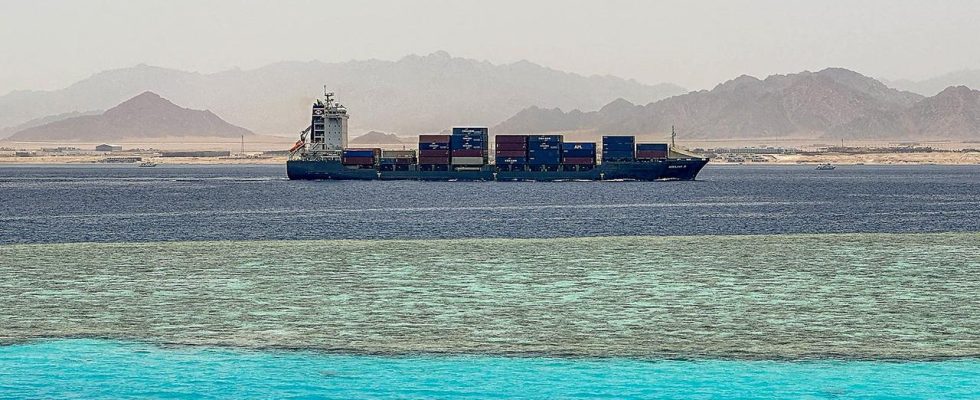interview
Cargo ships continue to take long detours to avoid the Red Sea – which has consequences for companies like Tesla and Ikea. Overall, the consequences for consumers are manageable, said retail expert Jörg Funder in an interview.
tagesschau24: Can the Western alliance’s attacks on the Houthi rebels make a difference?
Jörg Funder: In the medium term, the attack can change something. The major shipping companies Hapag-Lloyd and Maersk currently have to bypass the Red Sea. If the canal or the supply rate through the Red Sea to the Suez Canal is safer again, this could also persuade the large shipping companies to take the sea route through the Red Sea again. This could make trade between Asia and Europe faster and cheaper again.
To person
Prof. Jörg Funder is Professor of Corporate Management in Retail at the University of Worms. There he heads the Institute for International Trade and Distribution Management and oversees topics related to strategy and (digital) transformation – especially in the retail, consumer goods and consumer-related services sectors.
tagesschau24: According to the Kiel Institute for the World Economy (IfW), container traffic in the Red Sea has collapsed by 70 percent. What consequences does this have?
Funder: In fact, sea freight volumes in this region have collapsed. However, there are alternative routes such as overland via western China and also the possibility of using air transport. Therefore, the impact on companies and consumers will generally remain low. So far, only a few individual companies such as Tesla, Ikea and Aldi have reported that they are feeling the first effects of the attacks in the Red Sea.
tagesschau24: At Ikea, customers currently have to wait longer for their furniture. Tesla announced a production stop at the Grünheide factory from the end of January due to missing parts. Aldi is postponing a promotion because the advertised products are missing. The Red Sea is not the only region that is currently blocked. There are also strikes on German streets. How are companies reacting to this?
Funder: Retail companies and consumer goods companies have already learned during the Corona pandemic how important it is to make supply chains more resilient and independent of disruptions: to source more from European delivery areas and no longer exclusively from Asia. I expect that disruptions and disruptions in supply chains will continue to be a part of the situation in the future. That’s why it’s so important to replenish the warehouses here in Europe and to look for alternative procurement channels.
tagesschau24: Are the supply chains currently robust enough to withstand further crises? What role does the Cape of Good Hope play in this?
Funder: The problem with the Cape of Good Hope route is that the route is longer. This sea route takes a ship seven to 20 days longer. This results in higher transport costs. This is also why the Western alliance wants to make the Red Sea safer and navigable again.
The intervention of the Western alliance also has to do with the fact that the Chinese New Year will take place from February 10th. Asian companies are closed for up to four weeks. That’s why companies from the USA and Europe now want to replenish their warehouses before this festival. The attack on the Houthis could also serve to ensure the rapid transport of goods before a standstill in parts of Asia.
tagesschau24: Are we still dependent on these global supply chains to the extent we know them now?
Funder: The global supply chains that have been built over decades cannot be changed overnight. Nevertheless, the renovation has already begun. Many companies are looking for alternative producers from Eastern Europe and Southern Europe and are building new supply chains. New supply networks and connections with secondary suppliers are emerging. Much of what was previously relocated to Asia, for example, should be brought back piecemeal. But this will take the next five to ten years to tackle.
But the trend is clear: people are becoming increasingly independent of Asia. But there is also the question of whether these skills and capacities when it comes to consumption, consumer electronics, memory chips, but also very simple things like shoe production, can be built up again so quickly in Europe or near Europe.
The interview was conducted by Samir Ibrahim and Anne-Catherine Beck, ARD finance editors. The interview was shortened and edited for the written version.

